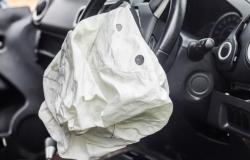Vehicles classified as Crit'Air 3 mainly include diesel cars registered before 2011 and gasoline cars registered before 2006. These restrictions are in addition to the bans already in place for Crit'Air 4, 5 and unclassified vehicles.
2025: new traffic restrictions
The main cities applying these new restrictions in 2025 are Paris, Lyon, Montpellier and Grenoble. However, the application of the rules may vary depending on the city:
- In Paris, Crit'Air 3 vehicles will be prohibited from Monday to Friday, from 8 a.m. to 8 p.m., with the exception of weekends and public holidays.
- In Lyon and Strasbourg, the ban will be stricter, applying 24 hours a day, 7 days a week, including for parking.
However, a period of tolerance is planned in certain cities. For example, in the Greater Paris Metropolis, an “educational year” is being implemented in 2025, during which offenders will not be punished. In addition, exemptions are provided for:
- In Lyon, a “small riders” exemption allows residents to circumvent these restrictions up to 52 times per year (with proof).
- Greater Paris is introducing a “24-hour ZFE pass” allowing excluded vehicles to travel in the ZFE up to 24 times per year.
Fine and impact on a large number of vehicles
Failure to comply with the restrictions may result in fines. The standard amount is 68 euros for light vehicles and 135 euros for heavy goods vehicles. However, it is important to note that these fines will generally not be enforced immediately. For example, in Paris, fines will not begin until 2026, when automated control systems will be deployed.
In mainland France, Crit'Air 3 vehicles represent 21% of the vehicle fleet, or nearly 8.84 million cars. It is therefore crucial for motorists to prepare for these changes, whether by considering replacing their vehicle or exploring transportation alternatives.
-Although these measures may seem restrictive for many motorists, they are part of a broader approach aimed at improving air quality in large cities. The tolerance periods and exemptions put in place should allow a gradual transition towards less polluting modes of transport.
???? To not miss any news on the Journal du Geek, subscribe on Google News. And if you love us, we have a newsletter every morning.
France






